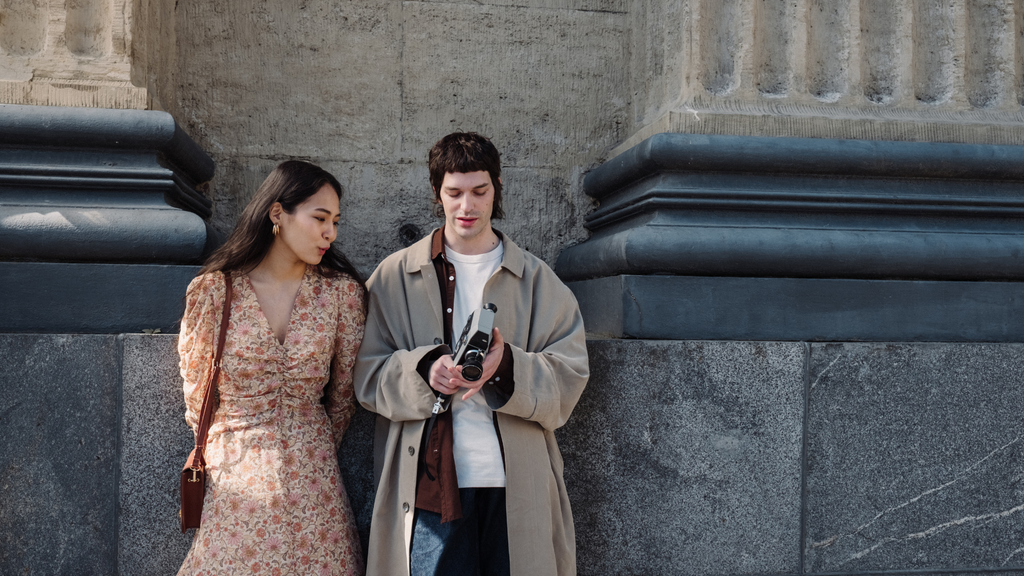Film photography, once at risk of becoming obsolete, has experienced a remarkable resurgence in the past two years.
The demand for film has skyrocketed, causing manufacturers to struggle to keep up, film shortages have been exacerbated by disruptions in the chemical industry due to the COVID-19 crisis and the war in Ukraine.
The renewed interest in film is largely driven by Generation Z photographers, who grew up with digital media but are now embracing the simplicity and authenticity of shooting with film cameras. Hashtags like #analog, #filmphotography, and #35mm on platforms like Instagram have millions of hits, showcasing photos captured on film and then digitised.
However, there is a downside to this trend. Many young photographers receive their digitised photos via email and neglect to pick up the physical negatives. This phenomenon of abandoning the negatives has caused frustration among film labs and retailers.
Despite this, there is a growing community of young photographers who are fully embracing film photography. They seek training, enjoy workshops, and are eager to exhibit their work. The appeal of film lies in its do-it-yourself nature and the autonomy it offers in the production process, free from software manipulation.
Do it yourself photography
“I think nowadays, digital photography has become such a big part of our daily life that it doesn't feel like an art,” Benita Lipps, a freelance photographer who has worked for a number of international publications, told The Brussels Times. “You can make great digital photographs with the phone and some post-production. But there’s no art to it, and there are smart algorithms that can do all the fancy stuff for you. With analogue you still have to do it yourself."
“Additionally, there's a scarcity aspect to analogue. You have 30 pictures, and you have to use them wisely. I think whenever you do something creative and you have an imposed restriction, it makes you better.”
“With digital, it's the opposite,” Benita added. “You click away and at the end you hope that you have one or two good photos. But with analogue, you need to compose everything as well as you can. You also don't have a quality control, so you really have to engage more. So, I feel like digital is more passive and with analogue, you actively create at the very moment that you shoot. That’s what makes photography an art form.”
“With digital, I can get a picture with my mobile phone and then I blur the background and then I cut it differently and change the colour scheme and the angle of depth. All these things, I don't have to think about them while I do it, whereas in analogue I have to think about all these things before I start. You go into it more consciously and that is beautiful and that actually is what makes photography interesting.”
The shift towards film also represents a countercultural movement and a desire to step away from the fast-paced digital world. Film allows for a more deliberate and mindful approach to photography, emphasising the importance of slowing down and taking time to capture moments.
'Technonostalgia'
Film's appeal is further enhanced by its organic and nostalgic qualities, similar to vinyl records. It offers an authentic and imperfect aesthetic, with characteristics like grain and motion blur being highly sought after.
In Brussels, the resurgence of photography labs is best exemplified by the recent success of Mori Film Lab in Forest. Having become something of a community centre for analog photographers, Mori offers high quality printing, workshops on how to use dark rooms, group walks and exhibitions.
The recent resurgence of film has been partly fuelled by technostalgia, a longing for the authenticity and simplicity of analogue technologies. The Covid-19 pandemic, with its ample free time, led many families to rediscover old photo albums and dormant camera equipment, sparking a new interest in film photography.
While it remains to be seen if this trend will continue or fade, camera manufacturers have been cautious about investing in film technology. With the dominance of smartphones, film still struggles to regain its former prominence in the market.

